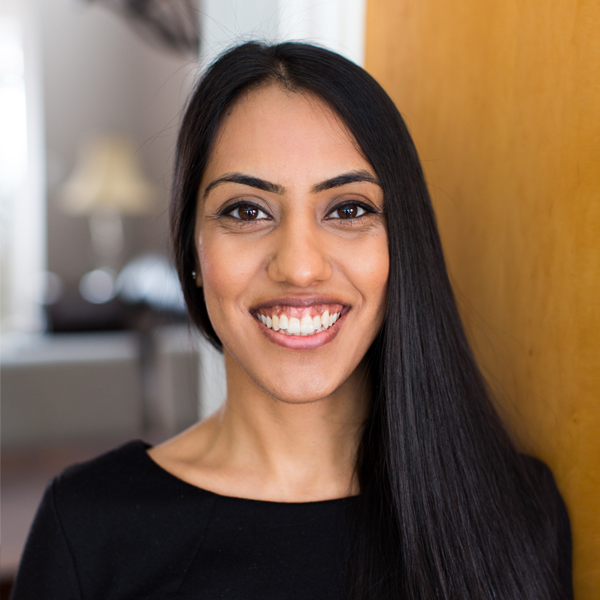Student Manages Clinical Trials on Tuberculosis Treatment.

Student Manages Clinical Trials on Tuberculosis Treatment
Pawandeep Kaur, clinical trial director in the Department of Global Health, manages global clinical drug trials on multi-drug resistant tuberculosis while pursuing her Doctor of Public Health degree.
With a strong background in biology and the medical sciences, Pawandeep Kaur (SPH’15) discovered a love for clinical research after graduating college. While working in an endocrinology clinic early in her career, she found a new interest she wanted to explore: public health.
“I didn’t have the vocabulary for it then, but I was seeing health disparities play out in the clinic every single day,” she says. “I knew I wanted to learn and do more.”
Kaur joined the School of Public Health in 2014 as a Master of Public Health student, studying social and behavioral sciences with a certificate in the pharmaceutical program. Since 2015, she has been working as a clinical trial director in the Department of Global Health. And in 2017, she began pursuing her Doctor of Public Health degree at SPH.
Through her clinical trials work, Kaur manages global clinical drug trials on multi-drug resistant tuberculosis. In this role, she meets regularly with project partners; creates manuals of procedures, reference manuals, and quality control protocols; and ensures everything from data management to pharmaceutical company contracts are in order and running smoothly.
“Tuberculosis (TB) is one of the oldest infectious diseases affecting the public’s health today,” she says. “It is a very complicated disease to treat, and despite all of the research being done, it is still a leading cause of death worldwide. Our work is really focused on trying to make this a more manageable disease.”
Patients with TB take antibiotics, often multiple at one time, to control the infection. But unlike the typical antibiotic treatment timeframe of 7-14 days, many patients with TB end up having to take their antibiotics for several months or even years due to resistance or relapse.
“We are working to find better treatment regimens, including different medication combinations, doses, and durations, for people with multi-drug resistant TB to make treatment periods shorter without compromising the effectiveness of the treatment itself or increasing the side effects,” says Kaur. “We also are trying to make sure that people don’t stop taking their medications and that they aren’t feeling miserable for weeks, months, or even years on end.”
Kaur works closely with C. Robert Horsburgh, professor of biostatistics, epidemiology, and global health, on two ongoing projects, one in Brazil and India, and one in the Philippines and Vietnam.
Because much of her work has been in the clinical trials space, Kaur says she wanted to step outside of this for her dissertation work, where she is looking at the behaviors, knowledge, and attitudes surrounding HPV vaccinations among immigrant women of Indian descent in the United States.
In addition to her academic work, Kaur is the chair of the Department of Global Health Diversity & Inclusion Committee. She co-founded the committee in 2019 with Thomas Lee, Jr. (SPH’19), alum and former academic program administrator for the Department of Global Health, to facilitate candid conversations and identify strategies that the department can implement to advance justice, inclusion, equity, and diversity.
The committee’s core working group consists of Kaur, as well as her global health colleagues Lisa Messersmith, associate professor, Lawrence Long, research assistant professor, and Anne Christine Heerdegen, postdoctoral associate. Together, the group has developed programming that includes a series of department-level discussions on various D&I-focused topics, as well as trainings and panel discussions featuring their global health colleagues or experts from other SPH departments.
“Our goal with these group learning sessions is to create a space where we, as a department, are learning together and figuring out how we can adapt what we are learning to fit our department’s needs and evolve,” says Kaur. “We were not asked to create an initiative like this, but we felt it was very much needed. We have still been given the autonomy to make decisions that we think would most benefit the SPH community, and it has been really exciting to be a part of so far.”
With the COVID-19 pandemic, the committee’s work has slowed down a bit. However, with faculty, staff, and students back on campus this fall, Kaur says she is excited to be planning more activities and training sessions, and hopes to see more of her global health colleagues get involved.
Kaur is also an active member of the Alumni Leadership Council, and is co-chairing a diversity and inclusion subcommittee with Bahby Banks (SPH’05) to help support and create new ways for diverse and inclusive alumni participation at SPH and beyond.
At SPH, Kaur says that one of the things she appreciates most is being part of a community that is constantly learning, growing, and trying to improve.
“There are a lot of opportunities here at SPH,” she says, “and there is a lot of room to expand on what we are doing. We are encouraged to bring new ideas to the table, and it feels really great to be a part of a community that supports diverse perspectives. No matter what your role is at SPH, we are all trying to make our community, and the world, a better place.”